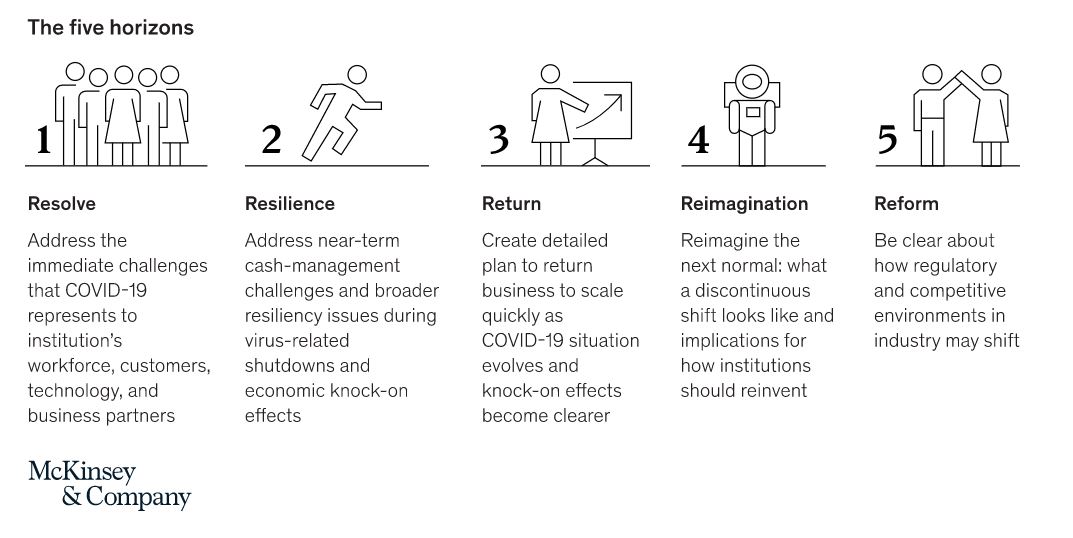As Covid-19 continues to spread around the world, the pressure on businesses to address a new reality has been immense at every level.
While it is still too early to predict the state of the after-crisis economy, worldwide efforts are obviously conducted to limit damages and stay as close as possible to the pre-crisis growth curves.
Much is being said about how brands are communicating in creative and supportive ways, but the effort by some brands to reposition themselves in the context of the crisis has yet to be commented on. As part of their team assignment for the Integrated Marketing Communications module that just took place online, we offered our MSc Marketing and Creativity students a chance to focus their final project on how brands use the crisis to reposition themselves. The outcome of their work is noteworthy for marketers.
Focus on brand
As the Covid-19 continues to spread around the world, the pressure on businesses to address a new reality has been immense at every level. While it is still too early to predict the state of the after-crisis economy, worldwide efforts are obviously conducted to limit damages and stay as close as possible to the pre-crisis growth curves.
Much is being said about how brands are communicating in creative and supportive ways, but the effort by some brands to reposition themselves in the context of the crisis has yet to be commented on. As part of their team assignment for the Integrated Marketing Communications module that just took place online, we offered our MSc Marketing and Creativity students a chance to focus their final project on how brands use the crisis to reposition themselves. The outcome of their work is noteworthy for marketers.
Playing with the business model
PornHub, an adult entertainment website, went for a massive communications plan through social media and 3rd party articles showing solidarity with the most affected European countries at that time: Italy, Spain and France. As the period of confinement was extended, they offered free access to their premium content for a month. They also contributed to the general effort by donating their modelhub (meaning their adult content marketplace) profits.
Students analyzing PornHub’s move saw it as an attempt to legitimize the brand by moving it away from a taboo position to one that supports people in a time of need. Their legitimizing effort paid off. According to the website’s statistical reports,they experienced a significant increase in website traffic. Visiting times were also more spread out during the day, possibly indicating greater social acceptance of their content.
Rethink the offer
Time Out is a global media and leisure business that inspires and enables people to explore and enjoy the best of a city. They give recommendations about nice bars, restaurants, sightseeing and all kinds of activities. Health measures taken by governments forced them to rethink their offer, and to shift their branding from “Time Out” to “Time In”. Their publications are now producing content on how to entertain yourself at home and prepare for the after-confinement era. Our students’ analysis was that the brand repositioned itself beyond supporting leisure time outside the home, to a broader range of activities both inside and outside the home.
More than continuing to do what they do best – giving recommendations – they managed to build brand awareness by remaining relevant and being responsible. As noted by our students, “Losing money hurts, losing audience hurts more.”
Create new spaces for entertainment
Chipotle, the Mexican Grill chain was impacted by the US government’s decision to close restaurants, but a door was still open with delivery. As the general primary concern, their first reaction was to take measures to prove customers their food comes safe straight from their restaurants’ kitchens. To do so, they started to use a tamper-evident packaging seal to guarantee that food had not been touched during delivery.
Chipotle also recognized that social distancing shouldn’t reduce social interactions, especially in a digital era in which options to reach out to each other are huge. Having identified lunchtime as the busiest time for restaurants, Chipotle committed to recreate the feel of significant gatherings by multiplying touchpoints with their customers. They repositioned themselves as a creator of virtual spheres to connect and be entertained, through virtual lunchtime on Microsoft Hangouts, live music sessions with artists on their Instagram page, and even meetings on Zoom.
Leverage existing assets
The luxury group LVMH was widely applauded for being among the first to leverage their existing assets early on in the crisis to address the shortage of hand sanitizer in France. It turns out that components of fragrances and hand sanitizer are very similar. The LVMH group mobilised its cosmetics and fragrances divisions in the country to adjust their manufacturing equipment and produce the precious gel. It was then distributed for free to the French health authorities to support Parisian hospitals, illustrating an extremely relevant repositioning from luxury to necessity.
As scary and damaging as this crisis can be, it also teaches us a lot. At a business level, creativity marketing has clearly shown that it can be applied by any type of business, at every level. One of our community members, Laurent François of ReUp shared his thoughts in an article entitled “Creativity era Covid-19”. He argues that the first step for businesses addressing the crisis has been to reassess how they create value and what kind of value they create, particularly by examining the relationships they have developed with all their relevant stakeholders over the years.
In a recent article on how to prepare for the post-crisis “New Normal”, McKinseyresearchers detail five horizons : Resolve, Resilience, Return, Reimagination and Reform.

Some of the brands our students have studied are well past the Resilience phase and are beginning to Reimagine their business in the New Normal context. Will their creative efforts to address the crisis survive in the New Normal? What kind of impact and learnings will outlive this unprecedented situation? Tackling such crucial questions and building the new pillars of the future ecosystem towards which we are moving is the next priority for us all, at every level. The Covid-19 crisis is more than a health crisis, large scale confinement has forced the most rapid and drastic redefinition of social interactions ever, and it is hardly surprising that some brands have taken the lead in reimagining their brand positioning in the New Normal which will emerge after the crisis. One can only applaud their foresight, agility and creativity in doing so.
Sources:
MMK team A1, PornHub – Anais Coulaud, Sara Dabar, Meike Friederich, Bianca Pomati, Marouane Saidi
MMK team A2, Chipotle – Isabella André, Elissa De Melo, Nivedita Jain, Dalia Jammal, Caroline Moser, Raphael Soulier
MMK team B2, Time Out – Amina, Alexandra, Akanksha, Nicole, Victor
LVMH – Press release
HBR – Understanding the economic shock of Coronavirus
McKinsey – Covid-19 implications for business
Laurent Francois – Creativity era Covid-19
Learn more about the L'Oréal Professorship Creativity Marketing
Campuses
